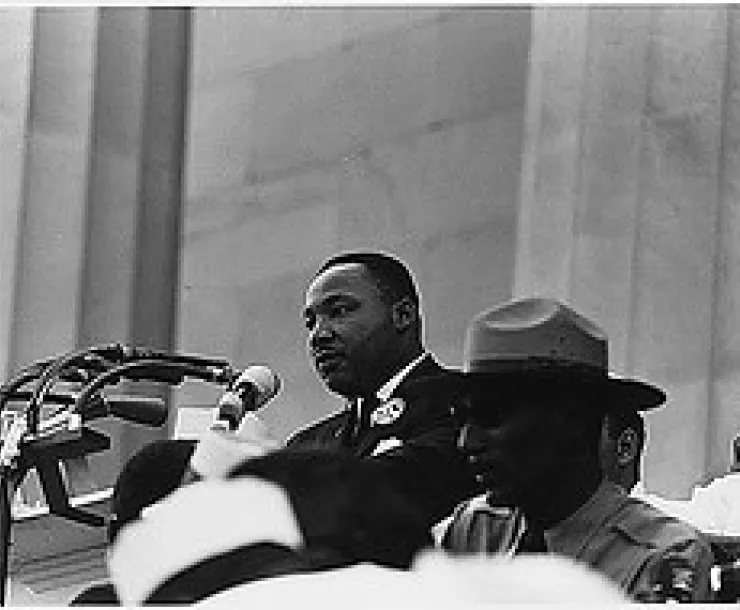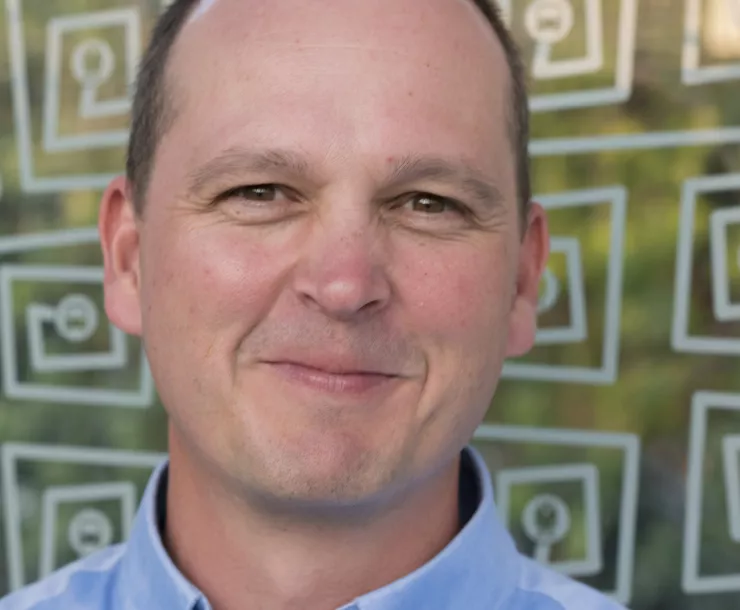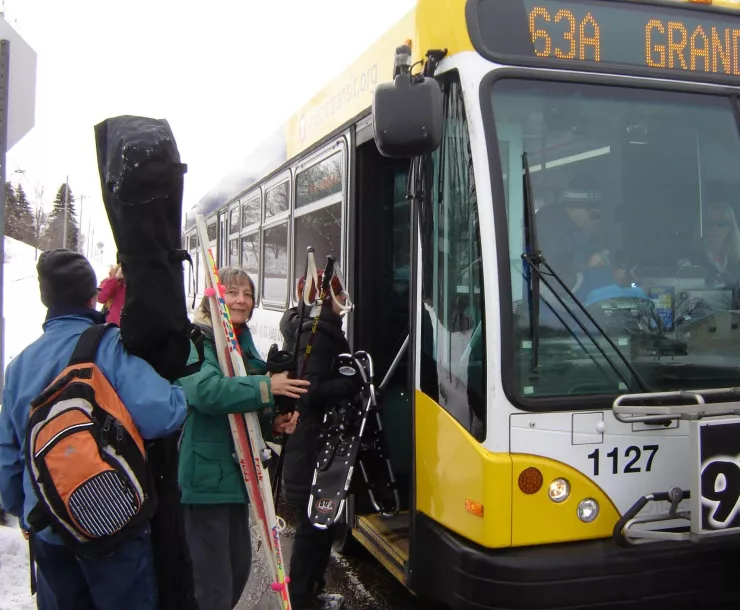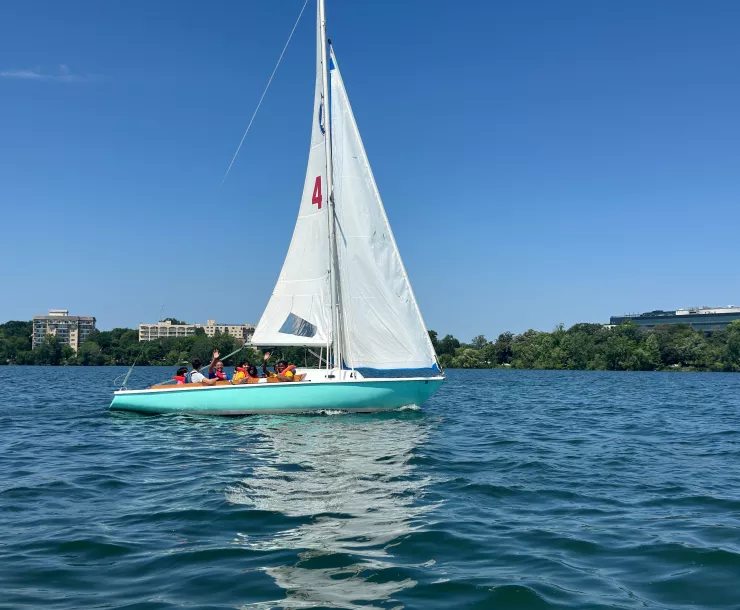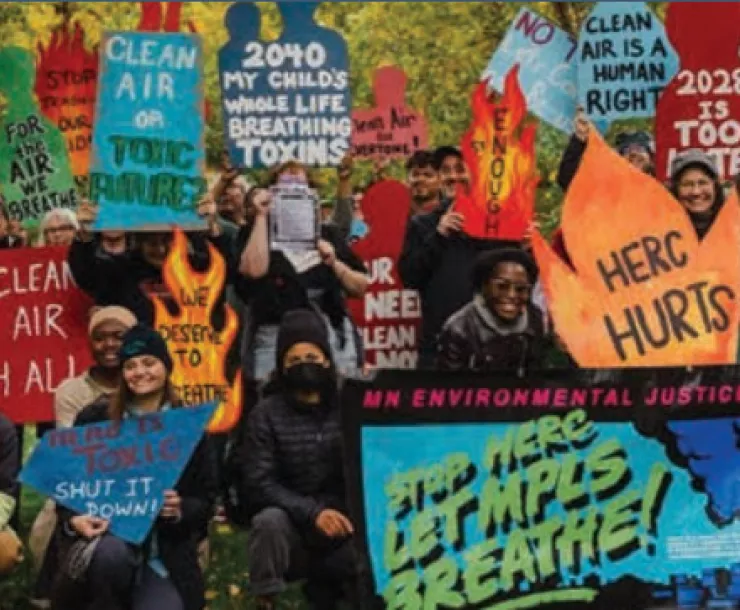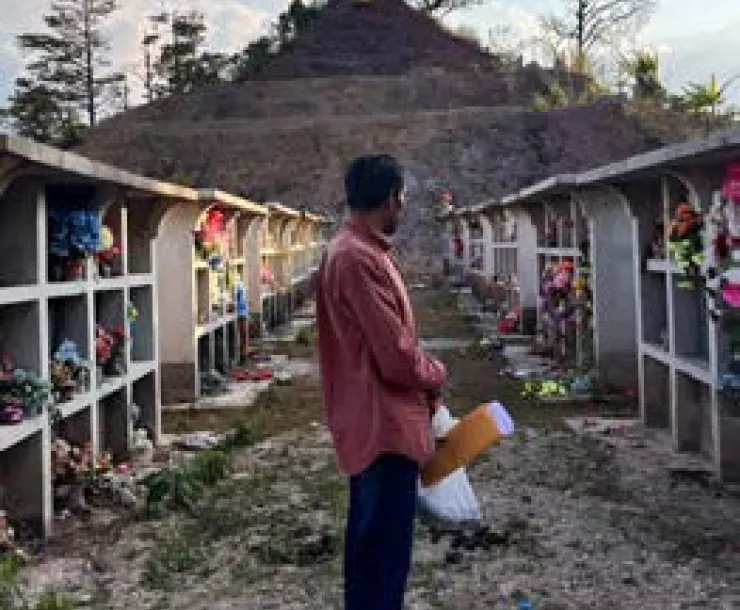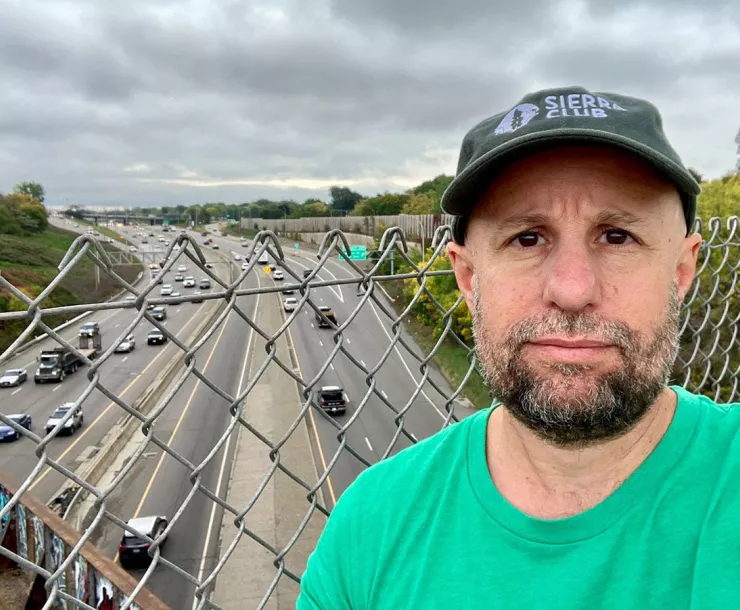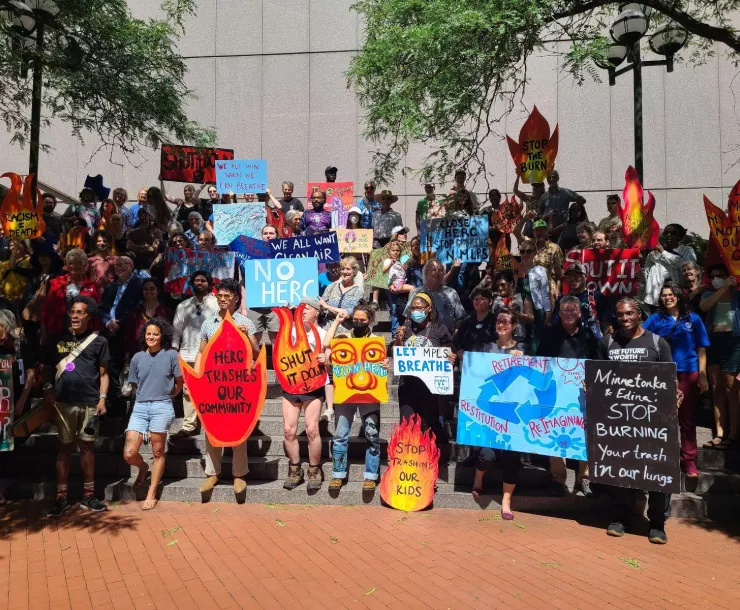We all have an essential role to play in infusing equity and racial justice into every part of our work.
The Black, Indigenous, and People of Color (BIPOC) staff and volunteers at the Sierra Club lead the way through their roles in racial and restorative justice work and partnerships with other organizations and movement leaders.
"The structures of racism and oppression
are set up to exhaust us, divide us, and
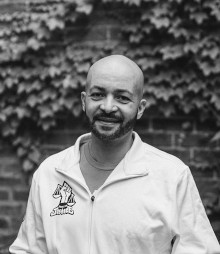 frighten us. They try to
frighten us. They try to
prevent us from joining in
solidarity with each other
and seizing power from
the powerful so that we
can create communities
where everyone can thrive, with clean air,
water, energy, and a stable climate for all.”
—Kamau Wilkins, Chair, North Star Chapter
Our white staff and volunteers are working on rooting out white supremacy culture in our chapter and our broader environmental community as we work to fulfill our mission.
On this page:
Our Equity Commitment
As the leading grassroots voice for Minnesota’s environment, the Sierra Club North Star Chapter is committed to:
-
Better serving our mission and our members by becoming an intercultural, anti-racist organization that is committed to partnering with communities and organizations to eradicate all forms of oppression;
-
Reflecting in our issue priorities the environmental concerns of all communities that call our state home;
-
Transforming our staff, leadership, membership, and organizational culture to be more reflective of Minnesota’s diverse communities by actively recruiting and warmly welcoming members of all communities into the Chapter’s work;
-
Continually evaluating the Chapter’s issue priorities and campaign plans through the lenses of Equity and Environmental Justice.
Racial Inequities and the Environment
Many of the environmental issues we all face today can be tied to racial inequities.
At the Sierra Club, building on the leadership of Hop Hopkins and his article Racism is Killing the Planet, we, like many, have realized that we need to go deeper and shift our way of thinking and behaving.
“ I really believe in my heart of hearts—after a lifetime of thinking and talking about these issues—that we will never survive the climate crisis without ending white supremacy.
Here’s why: You can’t have climate change without sacrifice zones, and you can’t have sacrifice zones without disposable people, and you can't have disposable people without racism.
We’re in this global environmental mess because we have declared parts of our planet to be disposable. The watersheds where we frack the earth to extract gas are considered disposable. The neighborhoods near where I live in Los Angeles, surrounded by urban oilfields, are considered disposable. The very atmosphere is considered disposable. When we pollute the hell out of a place, that’s a way of saying that the place—and the people and all the other life that calls that place home—are of no value.” Hop Hopkins, Racism is Killing the Planet
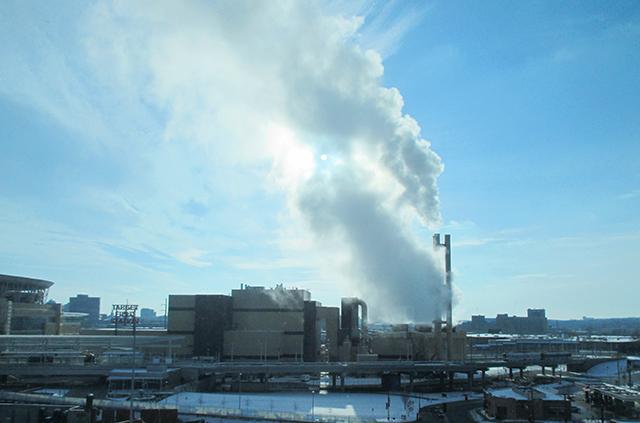
Hennepin County Energy Recovery Center (HERC) burning near downtown
and north Minneapolis
Here are some local examples of places our government agencies, and corporations are treating as disposable for the benefit of others :
-
The Minnesota Pollution Control Agency (MPCA) allowed Northern Metal Recycling to operate in north Minneapolis for years. The company benefited while residents of north Minneapolis paid the costs—polluted air that contributes to extremely high asthma rates, poor childhood health, and more.
-
U.S. Steel was allowed by the MPCA to continue violating water quality standards at its Minntac mine for years. U.S. Steel shareholders got the benefits, while degraded water quality harmed wild rice—an important food staple for the Anishinaabe people.
-
Hennepin County Energy Recovery Center (HERC) is a trash incinerator that is operated by Great River Energy on behalf of Hennepin County. Hennepin County residents and corporations get the benefit of trash disposal and energy. The residents of north Minneapolis living near the HERC bear the costs—air pollution and lower quality of life.
See On the Frontlines of Environmental Destruction and White Supremacy Culture for more information.
It doesn’t have to be this way. We can and must build a new way of relating to the earth and each other that is mutually generative and renewing.
-
We can start to see every place and person as sacred by insisting on environmental repair and by being actively anti-racist.
-
We can insist that companies bear the cost of repairing any damage they cause to the environment.
-
We can insist on conditions that value the lives of Black, Indigenous, and People of Color (BIPOC), including good wages, low pollution, and an end of police brutality.
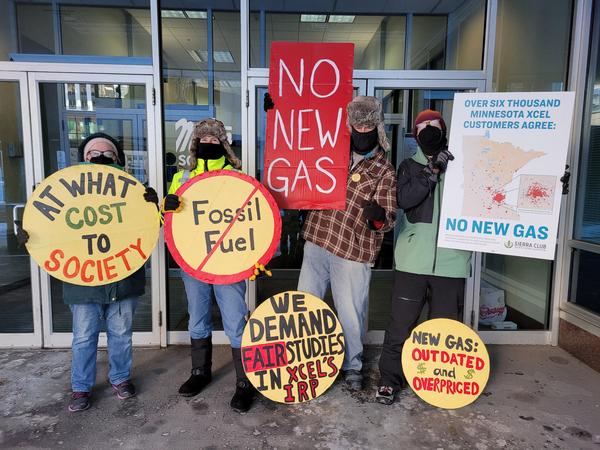
Activists outside the Public Utilities Commission ask for Xcel
to provide renewable, equitable energy (read more)
At the Sierra Club, we’re committed to doing this. We’re pushing ourselves and our leaders to enact pro-people, pro-environment policies.
Making these changes isn’t easy, but it’s essential. We do it because it's right. We do it because our humanity, our well-being, and our fights are interconnected. We do it because this is what it will take to reach a sustainable future.
Commitment Progress
To enact our equity commitment, the North Star Chapter created a Change & Equity Team to lead internal and external transformation.
Here’s a snapshot of our progress:
-
Campaigns Centered in Equity — All of our campaigns from zero waste to clean air affect Minnesotans differently. We are working to ensure that the voices of marginalized communities are heard and at the center of our campaign work.
-
Partner Events and Support — We are collaborating with partner organizations led by Black, Indigenous and People of Color (BIPOC) to make sure we are aligned with their needs and benefiting from their perspective on how to build a more just and equitable world.
-
Volunteer Structure & Trainings — We are offering volunteer teams resources for how to create inclusive, equitable spaces based on the Jemez Principles (check them out at https://www.ejnet.org/ej/jemez.pdf). We are offering training and resources on the basics of environmental justice and how to support it. (See our calendar for upcoming trainings.)
Get Involved
We are building a community of folks to learn and act together for justice. Sign up to get invites to equity related events and actions.
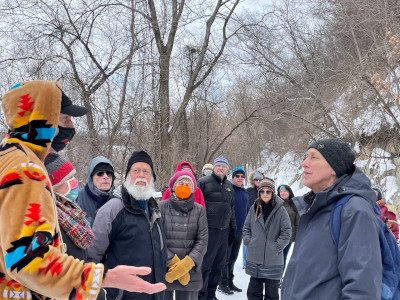
Deacon Deboer presents on how language can be a part of
decolonizing narratives at an outing at Mni Owe Sni/Coldwater Spring
Events
-
See our calendar and facebook page. We host regular training events aimed at furthering our equity goals. We also regularly share events from BIPOC leaders and organizations.
Resources
Articles & Blogs & Social Links
-
Racism is killing the planet, by Sierra Club staff Hop Hopkins, provides direct links between environmentalism and racism.
-
Why Every Environmentalist Should Be Anti-Racist, by Leah Thomas
Equity Resources Library
Our Equity Resources Library includes recordings of past equity seminars, resources for infusing equity into meetings and trainings, templates for team equity goals and more!
Video
-
Environmental Justice 101 - Listen or watch this edited version of our Impactful Strategies for a Sustianable Future training on how and why we must all fight for enviornmental justice and become anti-racist.
-
Racial Justice Town Hall - Recording of the panelist presentation from our August 2020 Town Hall focused on the relationship between police and our campaigns.
-
Being a Good Partner to Indigenous Groups - Most of us can list specific ways in which we can be a good partner to Indigenous groups, such as acting with respect, and recognizing dignity, equality, and independence. But given prevailing biases and patterns of behavior, acting consistent with these strategies requires understanding one's social location (e.g., white, female, middle class, college educated) and the dynamics of ongoing colonialism. In this 75-minute video, Ricky and Delaney give examples, stories, and more.
